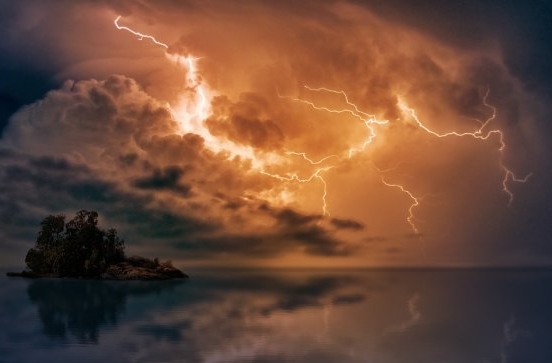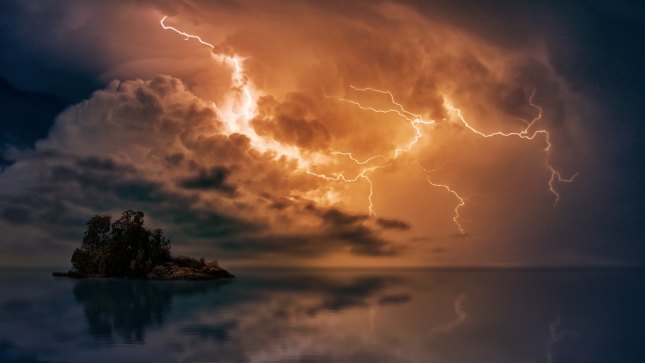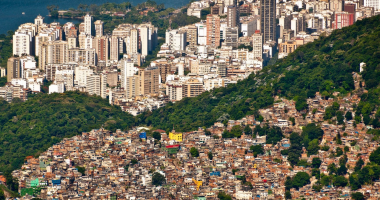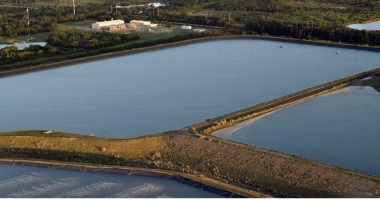Climate, Health and Equity Brief
Arctic Fires, Supercell Storms, And Climate Despair
July 18, 2019

Hot Topic: Nature’s wrath. While Louisiana saw less impact than predicted from Hurricane Barry, natural disasters of all types are on the rise around the world. Just this week, record-high temperatures in the Articled to massive wildfires; Nepal, Bangladesh, and India were hit with horrific floods, displacing hundreds of thousands of people; and Greece endured an extremely unusual and violent “supercell” storm that killed seven people and injured 100 more.
Unfortunately, the harm caused by these disasters doesn’t end when the storms or fires pass. Hurricane Barry has left a trail of sewage, snakes, and vermin in the floodwaters, threatening human health and safety. Artic wildfires have released more CO2 into the air this month than some countries do in a year. Toxic chemicals stirred up by hurricanes and wildfires have contaminated the air and water in California, Texas and Puerto Rico. And psychologists say these disasters are increasing global cases of deep anxiety and depression they have come to term “climate despair.”
Far from merely an existential threat, climate change has become a fact of life for people everywhere. Electing leaders that are determined to solve this crisis has become a moral imperative we all share, for ourselves and for generations to come.
—Matt & Traci, GMMB
Health
As Hurricane Barry moves north, Gulf states are facing threats from floodwaters, including snakes, “critters” and more than 250,000 gallons of sewage spilled along the Alabama coast. (USA Today)
Extreme weather and fires have released toxic chemicals from the soil, homes, and industrial waste sites into the air and water in California, Texas and Puerto Rico, with expected long-term health impacts. (The New York Times)
A new study found that in less than 20 years, heatwaves in parts of the American South, Southwest and Midwest will exceed 127 degrees, which is the maximum temperature that can be measured by the National Weather Service heat index. (National Geographic)
The World Meteorological Organization announced that unprecedented Arctic wildfires in Alaska, Alberta, and Siberia emitted more carbon dioxide in June than some countries emit in a year, forcing residents indoors and prompting one hospital to set up a “clean air shelter.” (The Guardian)
An extremely rare “supercell,” the most violent type of thunderstorm, killed seven people and injured 100 when it struck a Greek resort town that typically does not have summer storms. (Reuters)
Psychologists and psychotherapists are seeing an increase in “climate despair,” characterized as extreme cases of anxiety and depression sparked by fear of the earth warming and an end of civilization. (VICE)
Heatwaves, more pollen, longer allergy seasons and other impacts of climate change are leading doctors to discuss climate-related health risks with patients at general check-ups. (NPR)
Equity
A recent study found that countries most vulnerable to climate change also have the fastest-growing populations, exacerbating poverty and tensions between increasing economic development and mitigating climate impacts. (TIME)
Climate displacement does not qualify someone as a refugee, making it uncertain if governments will offer asylum to the 143 million people predicted to be displaced by climate change. (The Guardian)
Torrential rains caused mass flooding and mudslides in Nepal, Bangladesh, and India, killing more than a hundred, displacing hundreds of thousands, and flooding a camp of half a million Rohingya refugees. (The Guardian)
Action
Scientists have produced a solar panel that can distill and purify seawater that, if scaled globally, could produce 10% of the drinking water the world consumed in 2017. (BBC)
Abu Dhabi is planting Mangrove trees along its coastline to protect from erosion, wave surges, and floods. This tree’s extensive root systems also make them extremely effective for absorbing and capturing carbon. (CNN)
Upcoming Events
- September 4-6: The 2019 Planetary Health Annual Meeting
- September 12: Forests, Food & Land Day: Meeting the 30×30 Challenge
- September 23: UN Climate Summit 2019
- September 23-29: Climate Week NYC
- November 2: APHA Annual Meeting and Expo: “Creating the Healthiest Nation: For science. For action. For health.”
- November 11-22: Santiago Climate Change Conference (COP25)
How well do you know natural disasters?
Take this National Geographic QUIZ and find out.
“Climate change is not the concern of just one or two nations. It is an issue that affects the whole of humanity and every living being on earth.”
-The Dalai Lama
Have feedback on this issue? Email us






